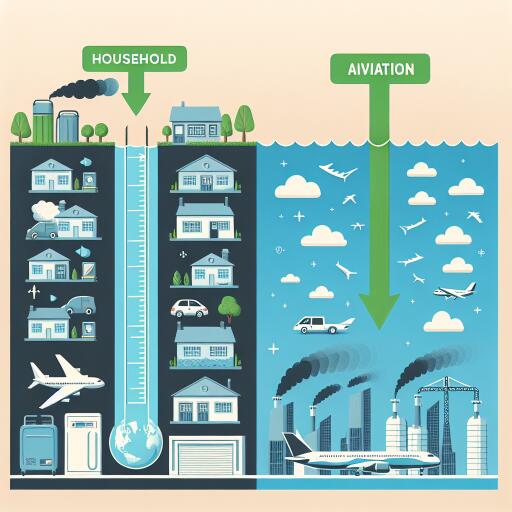
Emissions from Households’ Water Use: A Hidden Culprit Matching Aviation’s Carbon Footprint
In the quest to mitigate the impacts of climate change, every sector of the economy is scrutinized for opportunities to cut emissions. Typically, industries like transportation and energy receive the most attention due to their high emission levels. Yet, recent findings suggest that the humble act of heating water in our homes may be contributing to greenhouse gas emissions on a scale comparable to the aviation sector. This revelation sheds light on the overlooked potential for significant emission reductions and cost savings through more efficient domestic water use.
In particular, the urban water sector in Australia offers a compelling case study. Research highlights that the energy consumed to heat water not only places a financial burden on households but also significantly contributes to Australia’s overall greenhouse gas emissions. Among the government sector in Victoria, water utilities account for nearly a quarter of direct emissions (scope 1) and indirect emissions from procured energy (scope 2), making them a critical focal point for emission reduction strategies.
However, the real untapped potential lies in addressing scope 3 emissions, which stem from the end use of supplied water. Astonishingly, advancements in how households use hot water could yield emission reductions far surpassing those from optimizing operations within the utilities themselves. Data extrapolated from Melbourne households indicate that domestic water heating is responsible for approximately 3.8% of an individual’s carbon footprint, closely rivaling the 4.1% contribution from aviation.
One promising strategy to reduce these emissions and save on energy costs is the city-wide retrofitting of showerheads with next-generation technology. Such initiatives not only conserve water but significantly reduce the energy needed for heating, equating to emission reductions comparable to removing tens of thousands of cars from the roads annually. Moreover, the financial outlay for these programs pales in comparison to the investments water utilities typically make in renewable energy, yet promises more substantial economic benefits to society, including considerable savings for consumers on utility bills.
The hindrance to adopting efficient water use practices stems from a complex web of decision-makers, from manufacturers to water utilities and policymakers, who often overlook the long-term benefits of energy-saving technologies for immediate economic gains. This scenario exemplifies the classic “tragedy of the commons,” where individual actions deplete shared resources, in this case, the planet’s capacity to manage emissions, resulting in widespread negative consequences.
Realizing the potential for meaningful emission reductions through improved water-use efficiency requires a collaborative approach, transcending traditional boundaries to include community, industry, and government initiatives. Legislations and decision-making processes must evolve to prioritize communal over individual interests, aiming for solutions that minimize costs to society rather than to individual entities.
Importantly, the water industry, which is on track to neutralize scope 1 and 2 emissions by 2025, can extend its leadership in combating climate change by ambitiously targeting scope 3 emissions. This shift demands a broader perspective, embracing actions that the water sector can influence rather than control directly. Through such endeavors, the industry can set a precedent for all sectors to consider the broader implications of their products’ use, moving beyond production and distribution to encompass the environmental impact of consumption.
In conclusion, the domestic consumption of hot water, a seemingly minor component of daily life, emerges as a critical area for emission reductions. By rethinking our water use and embracing efficient technologies, we can achieve substantial cuts in greenhouse gas emissions, underscoring the importance of considering every facet of our lifestyles in the fight against climate change. As we move forward, the shared responsibility among communities, industries, and governments to pursue environmentally friendly practices will be paramount in shaping a sustainable future.





Leave a Reply